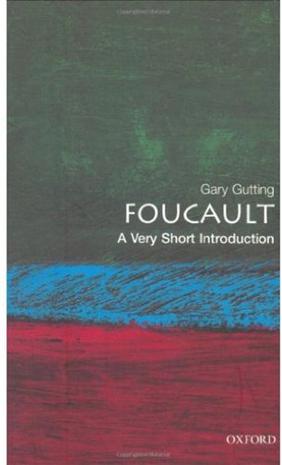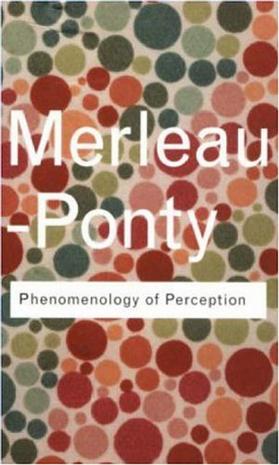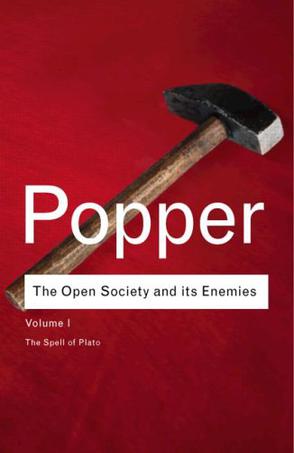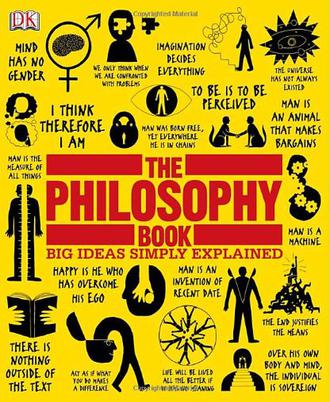-

Foucault
Foucault is one of those rare philosophers who has become a cult figure. Born in 1926 in France, over the course of his life he dabbled in drugs, politics, and the Paris SM scene, all whilst striving to understand the deep concepts of identity, knowledge, and power. From aesthetics to the penal system; from madness and civilisation to avant-garde literature, Foucault was happy to reject old models of thinking and replace them with versions that are still widely debated today. A major influence on Queer Theory and gender studies (he was openly gay and died of an AIDS-related illness in 1984), he also wrote on architecture, history, law, medicine, literature, politics and of course philosophy, and even managed a best-seller in France on a book dedicated to the history of systems of thought. Because of the complexity of his arguments, people trying to come to terms with his work have desperately sought introductory material that makes his theories clear and accessible for the beginner. Ideally suited for the Very Short Introductions series, Gary Gutting presents a comprehensive but non-systematic treatment of some highlights of Foucault's life and thought. Beginning with a brief biography to set the social and political stage, he then tackles Foucault's thoughts on literature, in particular the avant-garde scene; his philosophical and historical work; his treatment of knowledge and power in modern society; and his thoughts on sexuality. -

The World As Will and Representation (Volume 1)
Volume 1 of the definitive English translation of one of the most important philosophical works of the 19th century, the basic statement in one important stream of post-Kantian thought. Corrects nearly 1,000 errors and omissions in the older Haldane-Kemp translation. For first time translates and locates all quotes, provides full index. -

Phenomenology of Perception
-

The Open Society and its Enemies, Volume I
Written in political exile in New Zealand during the Second World War and first published in two volumes in 1945, Karl Popper's The Open Society and Its Enemies is one of the most famous books of the twentieth century. Hailed by Bertrand Russell as a 'vigorous and profound defence of democracy', its now legendary attack on the philosophies of Plato, Hegel and Marx prophesied the collapse of communism in Eastern Europe and exposed the fatal flaws of socially engineered political systems. Popper's highly accessible style, his erudite and lucid explanations of the political thought of great philosophers and the recent resurgence of totalitarian regimes around the world are just three the reasons for the book's enduring popularity and why it demands to be read today. -

The Book of Dead Philosophers
This provides brief accounts of the way the great philosophers of the Western tradition died. It in the course of this provides very incidental and also brief accounts of aspects of their respective philosophies. It does not claim to be a comprehensive scholarly work. In fact Critchley makes the point that the purely academic philosophers especially of the positivist tradition tend to lead less interesting lives than those for whom Philosophy is not a mere academic study but rather a crucial element in living. So Critchley's concluding pages contain a large number of Continental primarily French philosophers. They also include a section on Chinese philosophers with a commentary on the Zen way of thinking about Death. Critchley too is guided by his own 'philosophy of life and death'. This is one in which there is a strong objection to ideas of an afterlife or world- to - come. He prefers a kind of straightforward courageous looking of Death straight in the eyes, and accepting it. The 'learning how to die wisely' that he commends involves a preparation in acceptance and understanding. The idea seems to to be, to be here when we are here, without worrying where we will one day not be. What surprised me in one sense is that while most of the accounts are interesting few are moving. It is perhaps possible to be moved by Sartre's final words to his Beaver, de Beauvoir assuring her of his Love ( provided that is that they are not her invention). It is possible to be amused by Thoreau's reply to the question, "Have you made your peace with God?" in which he says , "I did not know we had quarrelled " It is possible to be struck by the philosopher of the Absurd Camus' dying in an absurd car- accident. There are dozens of accounts which have some kind of fascinating twist or detail. And often what is best in them is what they reveal about the character of the philosopher involved. Often as for instance with the no- nonsense courageous Hume and the endlessly fussing and deceptive narcissistic Rousseau their deaths are the continuation of their characters in life. The book fascinates but in focusing on the deaths of the philosophers and not on their overall conception and experience of Death it misses much. Thus for me the most profound and insightful words of the book come quite close to the beginning . They paradoxically have little to do what the book is about. Critchley writes about "the aspect of death is hardest to endure: not our own death, but the deaths of those we love.It is the deaths of those we are bound to in love that undo us, that unstitch our carefully tailored suit of the self, that unmake whatever meaning we have made.In my view...it is only in grief that we become most truly ourselves.That is , what it means to be a self does not consist in some delusory self- knowledge, but in the acknowledgment of that part of ourselves that we have irretievably lost". I would suggest another book could be written about what the deaths of those close have meant to the great Philosophers. And in fact in the pioneering work of Ben- Ami Scharfstein on how the lives of philosophers have effected them we learn that many of the greatest philosophers lost a parent at an early age. Still another book of great interest could be written on what the Deaths of the Philosophers themselves have meant to those closest to them. This is by the way not a book for students of Philosophy only- but rather one for all those who somehow wish to know and think more about the inevitable- and prepare themselves for it. And this though I doubt it will deprive each and every one of us of his own experience his own most likely very unpleasant surprise. I will only add one personal note. The traditional Jewish way, for philosophers and not philosophers, of leaving this world- if that is one has a chance to do it peacefully - is through uttering the great affirmation of the Jewish faith - 'Shema Yisrael'. Surrounded by loved ones after having bid farewell to each and all in the most considerate way possible- I can imagine myself saying the 'Shema' as word of prayer and faith not only for myself but for all those I love and care about who continue here. A word of prayer and blessing as a way of ending this life may be the best a person can do. -

The Philosophy Book
To the complete novice, learning about philosophy can be a cause for dread. The Philosophy Book uses innovative graphics and creative typography to help demystify hard-to-grasp concepts for those new to philosophy, cutting through the haze of misunderstanding, untangling knotty theories, and shedding light on abstract concepts. Aimed at anyone with a general interest in how our social, political, and ethical ideas are formed, as well as students of philosophy and politics, The Philosophy Book breathes new life to a subject that is often regarded as esoteric and academic.